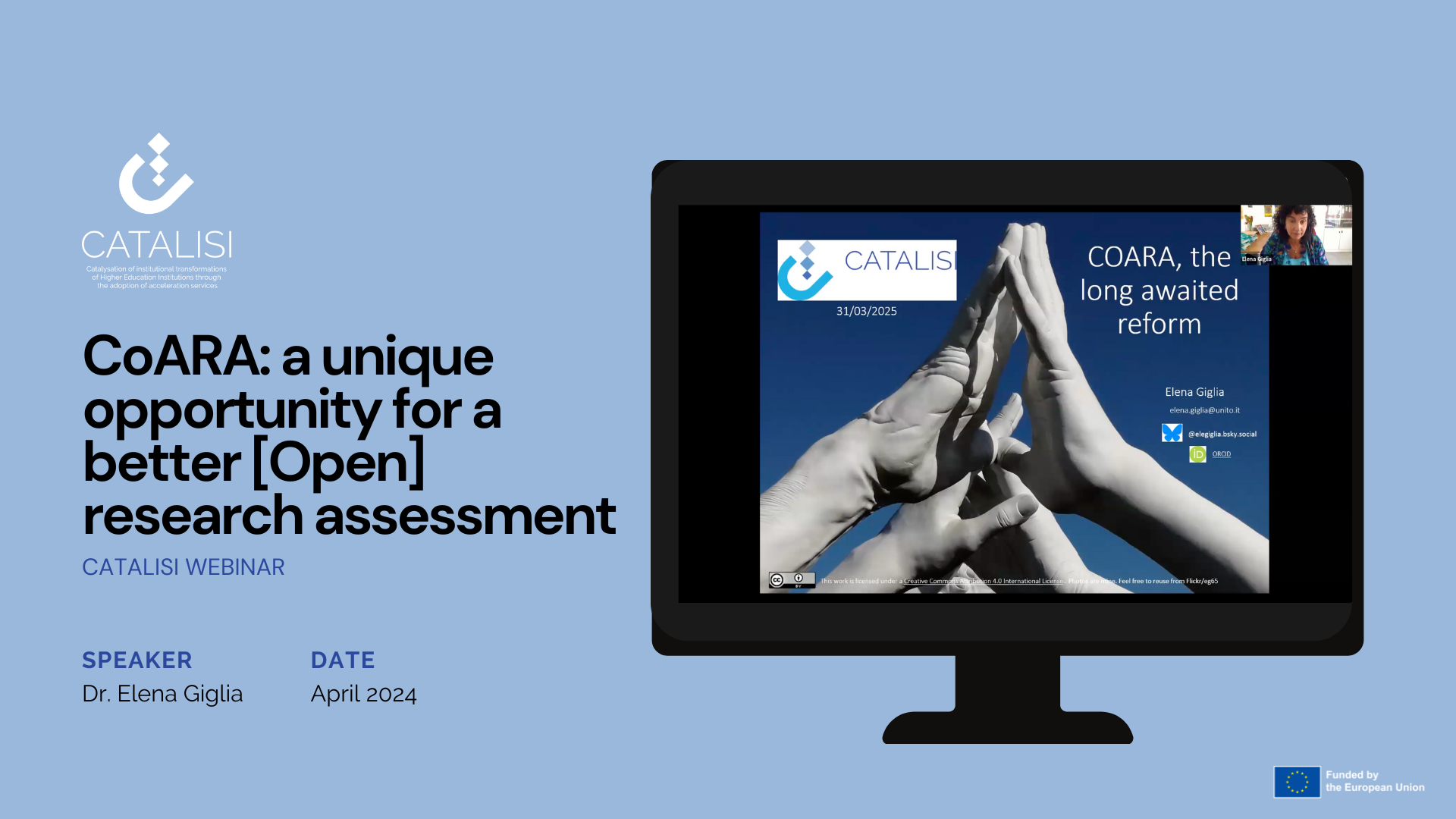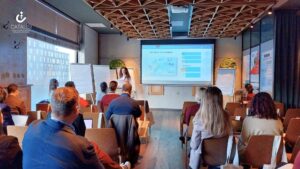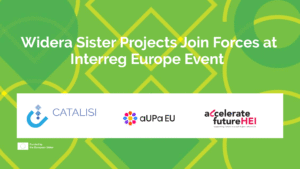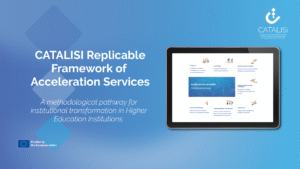
A recent webinar, organized within the context of the CATALISI project, focused on actionable strategies for the transformational pathway of higher education institutions, specifically addressing open science practices and the reform of research assessment.
Laura Mentini from APRE introduced the CATALISI project, highlighting its goal of assisting universities in their institutional transformation within research and innovation governance. The project operates through four facilitators providing acceleration services and seven higher education institutions implementing and testing these changes. Key transformation topics include research careers and talent support (addressing lifelong learning, gender equality, and research assessment), research modus operandi (mainstreaming open science and public engagement), and financial sustainability. The webinar falls under one of the seven acceleration services: reinforcing human capital, capacity building, and outreach.
Dr. Elena Giglia, Head of the Open Science Unit at the University of Turin, presented on the crucial initiative of reforming research assessment in alignment with open science principles. She began by highlighting the problematic aspects of the current evaluation system, dominated by journal impact factors and the commercial exploitation of open access through high article processing charges (APCs). A short video illustrated the absurdity of the high costs associated with publishing open access in prestigious journals, questioning the true openness and accessibility of such a system.
Dr. Elena Giglia introduced COARA (Coalition for Advancing Research Assessment), an initiative launched in 2022 with over 700 signatories, including major research funders, universities, and other organizations. COARA’s main commitment is to move away from the inappropriate use of journal impact factors and rankings in research assessment. The presentation emphasized that the current research assessment criteria often lead to negative consequences, including a hyper-focus on publications in high-impact factor journals, potentially at the expense of research quality, integrity, and trust.
Key principles and commitments of COARA include:
- Recognizing the diversity of research activities and outputs: Moving beyond solely evaluating publications to include software, code, datasets, methodologies, and other research contributions.
- Valuing quality over quantity: Emphasizing the rigor, reproducibility, and impact of research, not just the number of publications.
- Promoting open science practices: Recognizing and rewarding researchers for engaging in open access, open data, open peer review, and other open science activities.
- Fostering collaboration and engagement: Valuing teamwork, interdisciplinary research, and engagement with society.
- Ensuring transparency and fairness: Promoting transparent assessment criteria and processes, and addressing potential biases.
Dr. Giglia showcased examples of how different countries and institutions are already implementing changes in research assessment, such as the Netherlands banning the impact factor and Horizon Europe discouraging its mention in project proposals. She stressed that COARA is not just another declaration but an agreement with concrete commitments and a timeline for action plans.
You can watch the full video and have access to the materials in the Learning Hub



